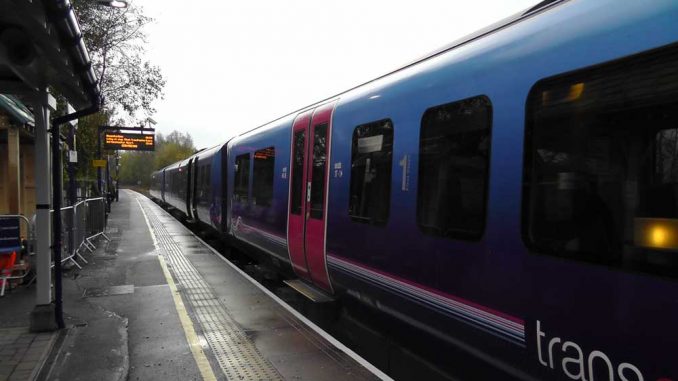
 A few weeks ago, Temple London got a week-long fall break from classes and internships — I know, our lives are so hard. To most, the word “break” translates loosely from the original Latin form of “to travel.”
A few weeks ago, Temple London got a week-long fall break from classes and internships — I know, our lives are so hard. To most, the word “break” translates loosely from the original Latin form of “to travel.”
During my break, I embraced my full Anglophilia and backpacked through the north of England and Scotland, relying heavily on trains. Using East Midlands, Northern Rail, Virgin and TransPennine Express trains, I moved effortlessly from national parks to former industrial giants.
While ancient Greece had perhaps the world’s first railway, a single track to deliver cargo from the sea, trains as we know them are an English invention, born of the Industrial Revolution of the early 1800s. The first twin-track railway stretched 35 miles from Liverpool to Manchester.
The trains were built mostly by Irish immigrants, called navigational engineers — or navvies, the same ones who later went to the U.S. and built the American railways, along with the Chinese immigrants.
In replacing carriages, and the canals built just a few years earlier, they were all the rage after their unveiling. More than 150 years later, trains are still an integral part of British life and culture. They possess a kind of romanticism, taking passengers through the most remote rolling countryside to and from the dense bustling cities. A ticket collector roams through the aisles. If you go to the dining car at the front you’ll find a woman selling snacks and booze from a “trolley.”
It’s easy to see why Britain chose to simply beef up its trains rather than everybody buying a car. When done right, trains are so much more efficient. No tolls, no bridges, no stops at the gas station. When you’re a small country you can do that.
To be fair, the U.S. could have done it a long time ago, but now it’s probably too late. So we have to make do with Amtrak. Woo hoo!
I booked all my tickets through the massively convenient TheTrainLine.com, with tickets costing £44, or $70. Cleverly, I chose to pick up all tickets at the station.
What I failed to factor in was that the first journey began at St. Pancras International station at 6:10 a.m. on Saturday. Now, maybe I forgot to mention in my last columns that the Tube does not run between 1:30 a.m. and 5:30 a.m.? I forgot myself.
And so at 2 a.m., I was borrowing a roommate’s computer to check the best night bus to get me across town in time to find the station, find the ticket kiosk, print my ticket, buy coffee and board the train. All of this would have to be done on no sleep, having come back from a concert just a few hours earlier, and in the freezing wind that chose to befall London that evening.
Such elements resulted in me sitting on a bus bench in Trafalgar Square at 4:30 a.m., wearing a beret under my sweatshirt and my pea coat, clutching the bulging duffel bag and lunchbox I would be carrying around for the next eight days.


 TransPennine Express transports travelers throughout England and is one of the few train operating companies that runs 24 hours a day. | AMELIA BRUST / TTN
TransPennine Express transports travelers throughout England and is one of the few train operating companies that runs 24 hours a day. | AMELIA BRUST / TTNIt got better after that.
St. Pancras was awash with early voyagers, almost all of them alive and moving briskly with their suitcases. Traveling so early in the morning brings on an adrenaline rush you won’t find anywhere else. On the East Midlands train I took that day to Chesterfield, which proved to be my favorite company, I got a seat at the table with two other young and sleepy travelers. To any riders, I highly recommend getting the table if you can. The elbow room is significantly greater and you get a full-sized window.
The Northern Rail train from Liverpool to Oxenholme was slightly less comfortable, and the TransPennine Express train to take me from Windermere to Glasgow was 10 to 15 minutes late. Hardly deal-breakers. To use the bathrooms most trains have a small passageway between cars, accessible by opening a pair of sliding Star Trek doors, where the bathroom is located.
While waiting on the platform at Windermere, three or four trains passed through the station without stopping, giving an insight into what trainspotters were talking about all this time. I never understood the appeal before — and let me be clear, I don’t refer to Irvine Welsh’s interpretation of injecting heroin into the “tracks” of your forearm. I mean the other kind.
The conductor signals the station by blowing the horn, and before you realize it a hundred-ton caterpillar flies past you, causing everything around you to shake and tremor until it’s gone, and you can faintly see the red Virgin logo fade into the distance.
I’ll miss them when I go home. The promptness, the smooth ride, the quietness of the cars, it all links to an English sensibility that everyone in the country is connected, and by God if one person arrives on time, that means we all arrive on time.
Amelia Brust can be reached at abrust@temple.edu.



Be the first to comment